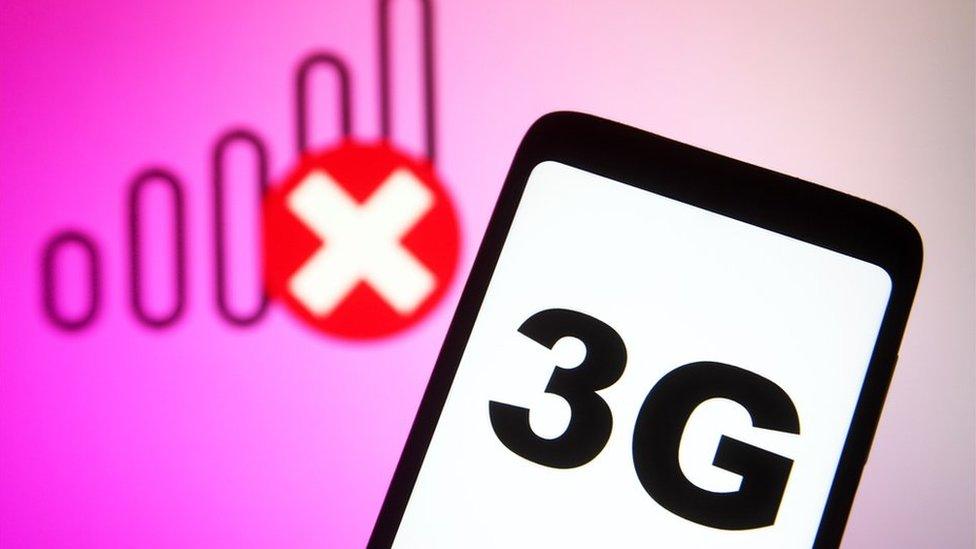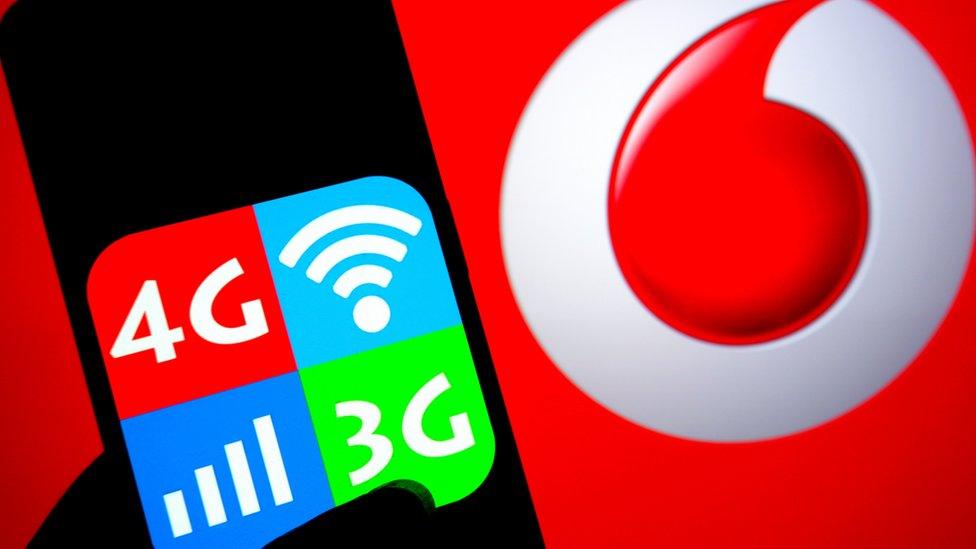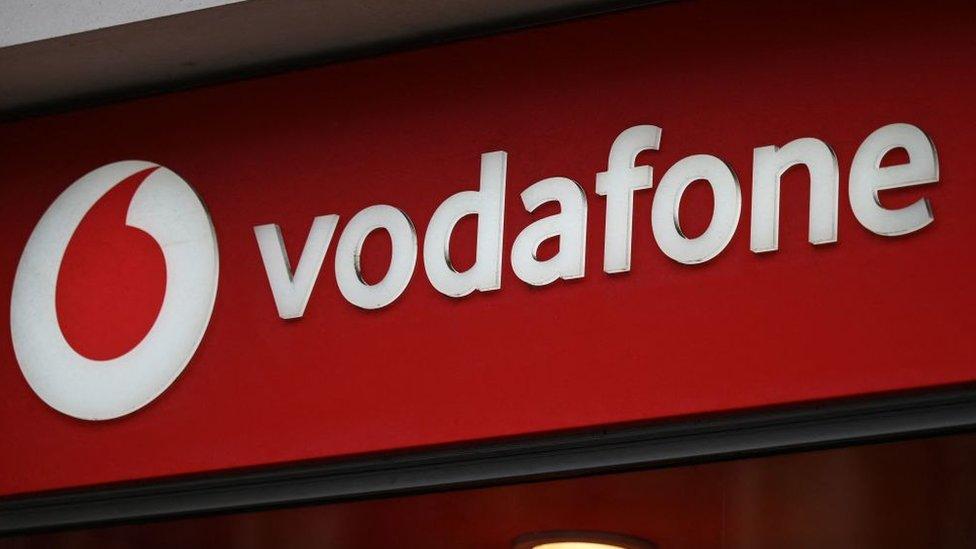Vodafone to start 3G network switch-off in Glasgow
- Published

Vodafone is the first of the UK's main mobile network providers to start switching off 3G
Vodafone is set to begin switching off its 3G network across Glasgow as part of a UK-wide shutdown.
The telecoms giant is the first of the four main mobile network providers to phase out 3G to make room for the more advanced 4G and 5G services.
Vodafone expects to complete the UK shutdown in early 2024. Its 2G network will remain for calls and texts.
Both EE and Three expect to switch off 3G by the end of 2024, while O2 has yet to announce a timeframe.
All the providers have confirmed that they do not plan to offer 2G services beyond 2033.
Customers with older devices will no longer be able to access most of their mobile data services after 3G is phased out.
About 5.5 million people in the UK are estimated to be still using devices which rely on 2G or 3G connectivity.


Vodafone wants to dedicate more resources to faster networks
The evolution of mobile networks
2G networks were first deployed during the early 1990s and are used for voice calls and text messaging, as well as very low-speed data communications.
3G networks were rolled-out during the early 2000s, and made it possible to access the internet through a mobile phone, alongside voice services.
The launch of 4G in the 2010s allowed for faster mobile broadband and higher bandwidth data services, including supporting more connected and smart devices.
5G services are now being deployed across the UK, providing enhanced access to data, with faster speeds and greater capacity.
Source: Ofcom

Campaigners have warned that turning off 3G networks will lead to people with older and more basic phones falling into "digital poverty."
Digital Poverty Alliance argue that switching off 3G will have "an adverse effect on the mission to help more people access the digital world".
Charity Age Scotland said it was understandable telecoms firms wanted to phase out their more basic networks.
But it warned that thousands of older people who still used more basic devices would "lose a vital means of communication and data access".
Age Scotland head of policy Adam Strachura said: "We know that lots of older people use older handsets because they want to stick with what they know and are confident using them, and many will be reluctant or unable to easily afford new devices.
"We would urge all telecoms firms to bear this in mind when upgrading their networks and increase their advertising and availability of social tariffs and handsets to ensure that older customers in this position don't lose out.
"Huge numbers of older people already struggle to access everyday services which are predominately online such as banking, council services, hospitality and travel information.
"We don't want to see even more pushed into digital or social exclusion because their mobile phones can no longer access data."
Ofcom is providing advice for consumers, external on the switch-off on their website.
Vodafone is also offering its customers "information, advice and guidance", external on the shutdown.
Related topics
- Published10 May 2023

- Published27 February 2023

- Published8 December 2021
